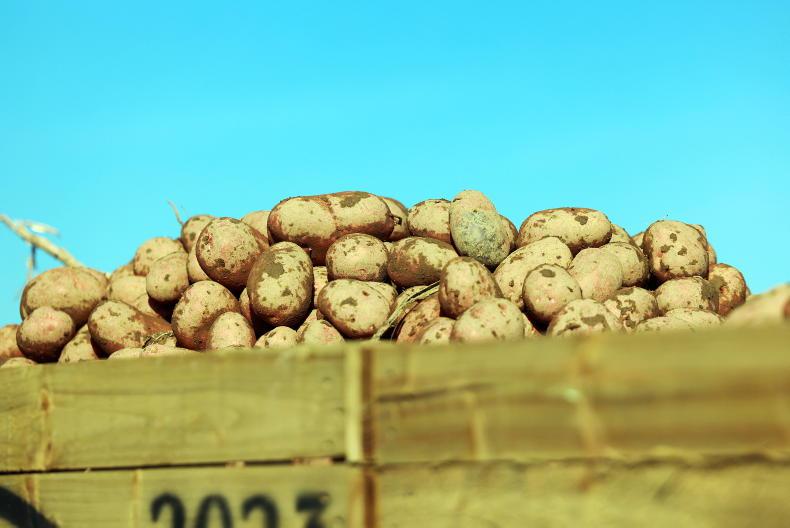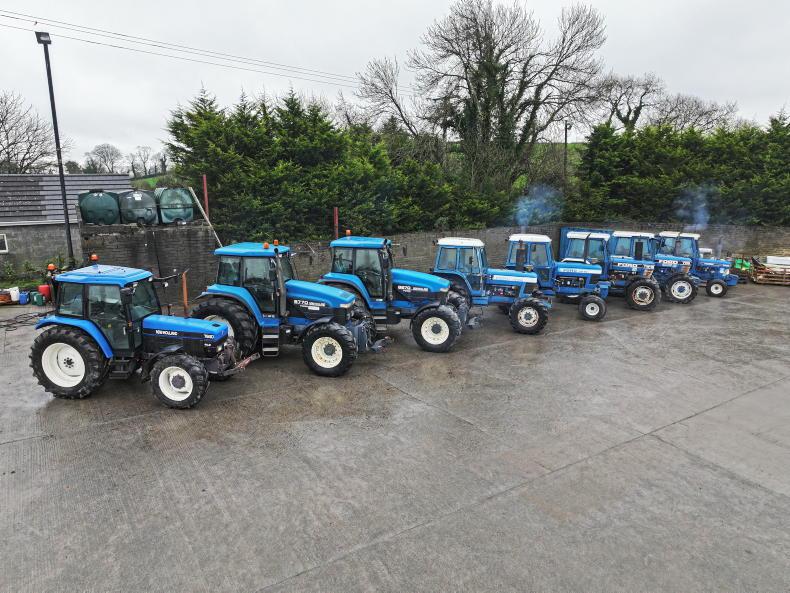For some, it’s golf. For others, it’s stamp collecting. However, my father’s passion is vintage combines.
We have two “classic” combines, the oldest being a Massey Ferguson (MF) 400 purchased by my grandfather new in 1964, and the newcomer, an MF 415, was made in 1970.
This was an era when such machines could be found combining the Great Plains of Texas (as well as three-acre fields in Ballymoney).
Although machinery has developed over the years, my father’s enthusiasm for these machines has not waned.
Many times over the years it has been tempting to use a contractor as a more efficient means of harvesting
Every year they are given a thorough pre-harvest service to ensure that every bearing is freely moving, every chain is oiled and every belt has just the right amount of tension. That attention to detail has ensured that the 400 completed its 56th harvest last month.
Many times over the years it has been tempting to use a contractor as a more efficient means of harvesting. However, due to the snatch-and-grab nature of this year’s harvest, and the fact that we have a modest acreage of cereals, it is unlikely that any contractor would have been able to come to us when required.
Straw
The combines have 8.5ft headers, so they left a narrow sward of straw which dried very quickly with a warm breeze, and we were able to bale one to two days after combining.
Our baling fleet is another classic affair using an International 435D baler, with a flat 8 bale sledge. Bales are stacked by the telehandler in stacks of 40, brought into the yard using a Tanco bale clamp, and stacked in the shed again using the telehandler. So thankfully there is minimal manual handling required.
Yes, the machinery may be slightly dated, but it still provides an efficient means of clearing a harvest field.
Thanks also to those friends and neighbours who share our love of vintage machinery, helping keep everything maintained, and have allowed us to keep the show on the road for another year.
Weather
The good weather that we were blessed with in September also allowed us to make some end of season haylage and get the slurry tanks emptied without any of the stress and pressure that can all too often be associated with the task at this time of year.
Our cows are still grazing during the day having only been kept in at night since the start of the month. Hopefully our youngstock are able to stay out during October to mop up any other grass across the farm.
The last month saw me complete a Red Tractor and Farm Quality Assured audit for our dairy and beef enterprises respectively.
I understand the necessity of both and how they are essential to ensure that high standards can be maintained in our industry, and those standards conveyed to our customers.
I also do not have an issue with the on-farm inspectors, who I have always found to be polite and obliging.
However, I do have an issue with not only the volume of bureaucracy, but also the jargon that we have to contend with when filling out the required paperwork prior to inspection.
This criticism could also be expanded to DAERA who I have found from personal experience are unable to answer some relatively simple questions
For example, in the Dairy Health Plan the question is asked “what is your euthanasia decision tree?” Such language not only discredits the brand in the eyes of some farmers but can also be hard for any of us to understand.
Research done by NFU Scotland suggests that 25% of UK farmers are dyslexic, compared to 10% in the wider population.
Therefore, it is essential that language should be made straightforward, easy to understand, and that bureaucratic paperwork is minimised.
If a dyslexic person was confronted with this situation they may well not feel confident to submit the question
This criticism could also be expanded to DAERA who I have found from personal experience are unable to answer some relatively simple questions over the phone, and insist that the question is submitted in writing.
If a dyslexic person was confronted with this situation they may well not feel confident to submit the question, and that could result in their business suffering. No farmer should be put at a disadvantage because of dyslexia, and their literacy ability should in no way be held as a reflection on their ability as a farmer and a business manager.
Read more
The right attitude helps in farming
Farmer Writes: the good and bad of using social media
For some, it’s golf. For others, it’s stamp collecting. However, my father’s passion is vintage combines.
We have two “classic” combines, the oldest being a Massey Ferguson (MF) 400 purchased by my grandfather new in 1964, and the newcomer, an MF 415, was made in 1970.
This was an era when such machines could be found combining the Great Plains of Texas (as well as three-acre fields in Ballymoney).
Although machinery has developed over the years, my father’s enthusiasm for these machines has not waned.
Many times over the years it has been tempting to use a contractor as a more efficient means of harvesting
Every year they are given a thorough pre-harvest service to ensure that every bearing is freely moving, every chain is oiled and every belt has just the right amount of tension. That attention to detail has ensured that the 400 completed its 56th harvest last month.
Many times over the years it has been tempting to use a contractor as a more efficient means of harvesting. However, due to the snatch-and-grab nature of this year’s harvest, and the fact that we have a modest acreage of cereals, it is unlikely that any contractor would have been able to come to us when required.
Straw
The combines have 8.5ft headers, so they left a narrow sward of straw which dried very quickly with a warm breeze, and we were able to bale one to two days after combining.
Our baling fleet is another classic affair using an International 435D baler, with a flat 8 bale sledge. Bales are stacked by the telehandler in stacks of 40, brought into the yard using a Tanco bale clamp, and stacked in the shed again using the telehandler. So thankfully there is minimal manual handling required.
Yes, the machinery may be slightly dated, but it still provides an efficient means of clearing a harvest field.
Thanks also to those friends and neighbours who share our love of vintage machinery, helping keep everything maintained, and have allowed us to keep the show on the road for another year.
Weather
The good weather that we were blessed with in September also allowed us to make some end of season haylage and get the slurry tanks emptied without any of the stress and pressure that can all too often be associated with the task at this time of year.
Our cows are still grazing during the day having only been kept in at night since the start of the month. Hopefully our youngstock are able to stay out during October to mop up any other grass across the farm.
The last month saw me complete a Red Tractor and Farm Quality Assured audit for our dairy and beef enterprises respectively.
I understand the necessity of both and how they are essential to ensure that high standards can be maintained in our industry, and those standards conveyed to our customers.
I also do not have an issue with the on-farm inspectors, who I have always found to be polite and obliging.
However, I do have an issue with not only the volume of bureaucracy, but also the jargon that we have to contend with when filling out the required paperwork prior to inspection.
This criticism could also be expanded to DAERA who I have found from personal experience are unable to answer some relatively simple questions
For example, in the Dairy Health Plan the question is asked “what is your euthanasia decision tree?” Such language not only discredits the brand in the eyes of some farmers but can also be hard for any of us to understand.
Research done by NFU Scotland suggests that 25% of UK farmers are dyslexic, compared to 10% in the wider population.
Therefore, it is essential that language should be made straightforward, easy to understand, and that bureaucratic paperwork is minimised.
If a dyslexic person was confronted with this situation they may well not feel confident to submit the question
This criticism could also be expanded to DAERA who I have found from personal experience are unable to answer some relatively simple questions over the phone, and insist that the question is submitted in writing.
If a dyslexic person was confronted with this situation they may well not feel confident to submit the question, and that could result in their business suffering. No farmer should be put at a disadvantage because of dyslexia, and their literacy ability should in no way be held as a reflection on their ability as a farmer and a business manager.
Read more
The right attitude helps in farming
Farmer Writes: the good and bad of using social media









SHARING OPTIONS